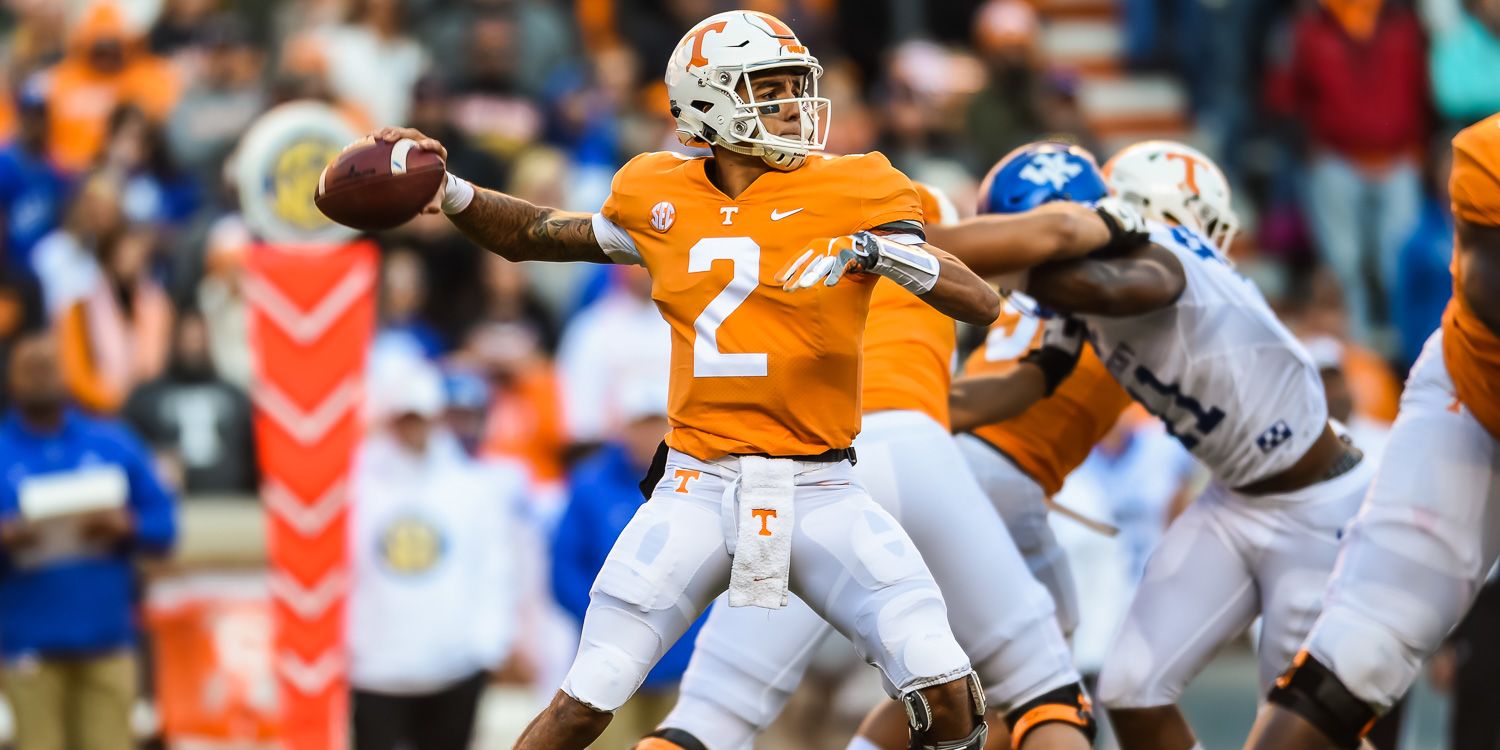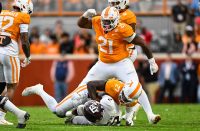No team in the country ran fewer plays than Tennessee last season.
The Vols had 716 snaps in 12 games, 59.7 per contest. Maryland was next with 728 snaps. Tennessee also flirted with last place in this category in 2017 – 732 snaps, 125th nationally – but the offense did make strides from one year to the next. The Vols ran fewer plays for the reasons you’d expect in 2017, but were better in all of those categories last fall:
| 2017 | Rank | 2018 | Rank | |
| Yards Per Play | 4.77 | 120 | 5.46 | 88 |
| Punts Per Game | 5.9 | 23 | 5.5 | 33 |
| Third Down % | 30.7% | 120 | 38.2% | 74 |
| Time of Poss. | 28:14 | 104 | 29:10 | 86 |
| Turnovers | 18 | 48 | 16 | 30 |
(stats from SportSource Analytics)
The offense improved, but the pace slowed even more. I wouldn’t expect Tennessee to lead the league in total plays under Jeremy Pruitt, no matter who the offensive coordinator is. But we speculated throughout last fall if Tennessee was going slow on purpose, for protection of its defense or otherwise.
It was often easiest to arrive at that thought on first down. Last year the Vols attempted only 95 passes on first down, 119th nationally. Most of what’s behind them are service academies, Georgia Tech, and other option teams. Unlike some of those teams, the Vols played from behind for significant minutes against half of their schedule.
Running on first down could still bear fruit: Tennessee averaged 4.46 yards per carry on 1st-and-10, up from the 3.70 yards they averaged per carry overall. We’ll talk more about this when we get to what the Vols did on 3rd-and-1 in this series. But Tennessee’s 219 first down carries gave them a run/pass ratio of 69.7% on first down.
What kind of difference will Jim Chaney make? One of his greatest strengths is adapting the offense to the talent around him. With Tyler Bray in 2012, the Vols ran the ball just 55.8% of the time on first down. With Nick Chubb and Sony Michel in 2017, Georgia ran the ball a whopping 77.3% of the time on first down. The 2017 leaderboard of first down rushing attempts: Georgia, Air Force, Army, Navy.
In some ways we’ll just need to see it before saying how exactly the Vols will/should go faster in 2019. If Pruitt was, in fact, trying to protect his defense last fall, will it need the same protection this year with an entirely new defensive line? If the offense can excel with plenty of returning pieces and Chaney’s leadership, will the Vols intentionally engage in faster play and more points? There’s no guarantee the one will lead to the other: last year Tennessee’s most efficient day at the office came against Kentucky, where the Vols averaged 6.87 yards per play in just 60 snaps. But the season highs (79 plays vs Florida) and lows (46 at Georgia) produced the two least efficient days against power conference foes: 4.61 yards against the Gators, 4.54 against the Dawgs.
The Vols need to go a little faster with a little more balance on first down. How much more of each will represent their best football in 2019? Stay tuned.




